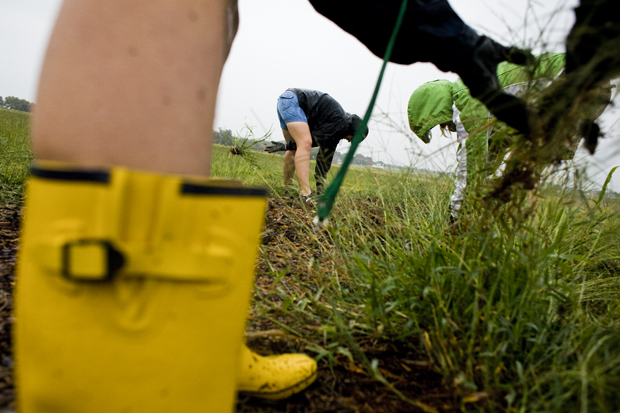Students push for locally grown food on campus
November 2, 2010
Soon, students dining on campus may know exactly where the food on their plate comes from.
Student organizations who are working toward making WKU a more sustainable campus, like GreenToppers and Americans for Informed Democracy, would like to see more locally grown and produced foods served in dining facilities.
At the Board of Regents meeting on Oct. 22, Sustainability Coordinator Christian Ryan-Downing said students want “real” food to be available.
“This means locally grown and produced foods,” Ryan-Downing said.
Elizabethtown senior Nick Asher, a member of GreenToppers, said the movement began when Ryan-Downing and Recycling Coordinator Cristin Lanham taught a class that maintained a garden at the University Farm.
“A lot of students have been passionate about this for a very long time,” Asher said. “This was a way for them to see it through.”
Although buying locally produced food is more expensive, people should look at where the money is going, Asher said.
“If you spend money locally, it tends to stay local,” he said. “This will help in a large number of ways.”
Matt Vaughan, a senior from Mexico, Mo., said students at WKU have a right to know where their food comes from.
“They also have a right to decide what products they consume,” Vaughan said.
Vaughan, also a member of GreenToppers and president of WKU’s chapter of AID, said WKU can provide students with more locally grown food in a three-part solution.
The solution begins with students pressuring WKU officials to serve “real” food, he said.
Then, the WKU Restaurant and Catering Group should include more student representatives in decisions about dining on campus, Vaughan said.
The final step is for the administration to support and help facilitate an open and ongoing dialogue with the Restaurant and Catering Group, Vaughan said.
Dining Services Director Tim Colley said on campus dining facilities, such as DUC and the Fresh Food Company, do try to serve as much locally grown as possible, while Aramark is working on trying to find venues to make it more accessible.
WKU has an agreement with Chaney’s Dairy Barn and serves Big Red Rumble ice cream in DUC, he said. Also, the Fresh Food Company has partnered with Jackson’s Orchard in serving seasonal fruits.
Colley said he and other representatives from WKU attended a meeting on Friday regarding the issue.
WKU is hoping to serve more locally grown food in the future, Colley said.
“There’s not the accessibility and amenities needed always in the local market, but we’re working on it,” he said.
























